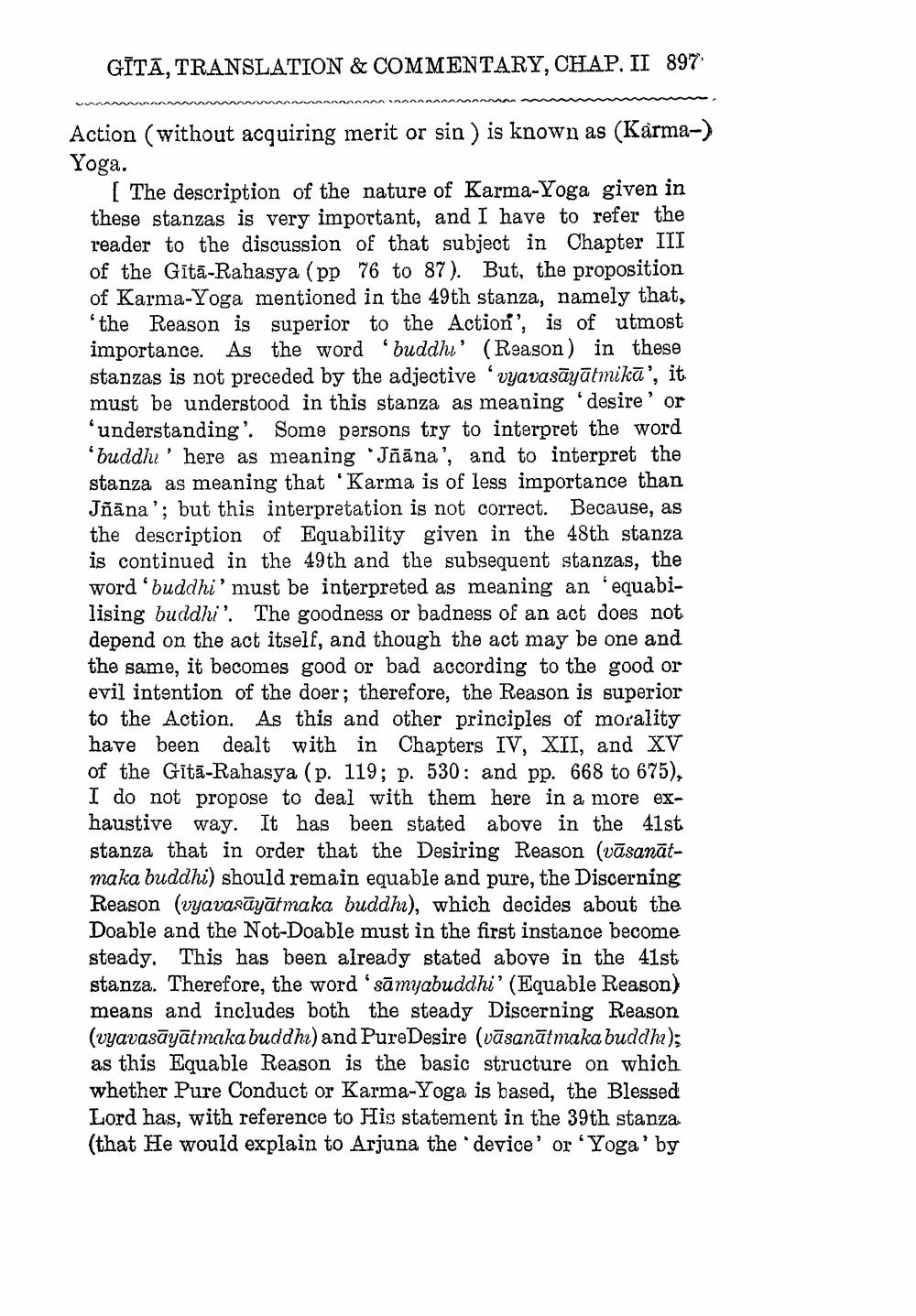________________
GITĀ, TRANSLATION & COMMENTARY, CHAP. II 897
Action (without acquiring merit or sin ) is known as (Kärma-) Yoga.
[ The description of the nature of Karma-Yoga given in these stanzas is very important, and I have to refer the reader to the discussion of that subject in Chapter III of the Gītā-Rahasya (pp 76 to 87). But, the proposition of Karma-Yoga mentioned in the 49th stanza, namely that, 'the Reason is superior to the Action', is of utmost importance. As the word "buddhi' (Reason) in these stanzas is not preceded by the adjective 'vyavasāyātmikā', it must be understood in this stanza as meaning "desire' or
understanding'. Some persons try to interpret the word 'buddhi' here as meaning Jñana', and to interpret the stanza as meaning that 'Karma is of less importance than Jñāna'; but this interpretation is not correct. Because, as the description of Equability given in the 48th stanza is continued in the 49th and the subsequent stanzas, the word 'buddhi' must be interpreted as meaning an 'equabilising buddhi'. The goodness or badness of an act does not depend on the act itself, and though the act may be one and the same, it becomes good or bad according to the good or evil intention of the doer; therefore, the Reason is superior to the Action. As this and other principles of morality have been dealt with in Chapters IV, XII, and XV of the Gītā-Rahasya (p. 119; p. 530: and pp. 668 to 675), I do not propose to deal with them here in a more exhaustive way. It has been stated above in the 41st stanza that in order that the Desiring Reason (vāsanātmaka buddhi) should remain equable and pure, the Discerning Reason (vyavasāyāt maka buddhr), which decides about the Doable and the Not-Doable must in the first instance become steady. This has been already stated above in the 41st stanza. Therefore, the word 'sāmyabuddhi' (Equable Reason) means and includes both the steady Discerning Reason (vyavasāyātmakabuddha) and Pure Desire (vāsanātmaka buddhi); as this Equable Reason is the basic structure on which whether Pure Conduct or Karma-Yoga is based, the Blessed Lord has, with reference to His statement in the 39th stanza (that He would explain to Arjuna the device' or 'Yoga' by




